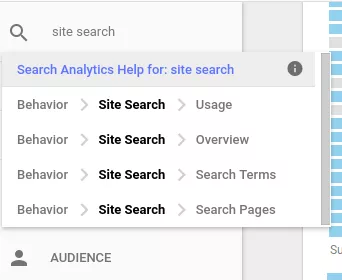Read WordPress search analytics using GA for more information.
Search functionality is a crucial aspect of any website, allowing users to quickly find relevant information. In WordPress, the get_search_query function plays a vital role in retrieving the search query variable. However, there are instances where this function may return an empty value, leading to unexpected behaviour. Let’s delve into the intricacies of this issue and explore ways to enhance the search experience on your WordPress blog.
When a user interacts with the search feature on your website and submits a query, WordPress captures and processes the search string. The get_search_query function is responsible for retrieving this search query variable. However, a common scenario arises when the search string is empty, either due to unintentional clicks or users submitting the search form without entering any terms.
In such cases, WordPress defaults to a behaviour where it redirects the empty search query to the home page. The resulting URI might look like this: example. com/?s=. Surprisingly, this URI displays the same content as your website’s front page. Essentially, it becomes a redirect to the default content, making it appear as though the search never occurred.
This behaviour can be a concern for website owners, as it may lead to a suboptimal user experience. Users might expect a search-specific result or an indication that their search term was empty. Instead, they are redirected to the home page without any feedback, potentially causing confusion.
To address this issue and enhance the search functionality on your WordPress site, consider implementing a few strategies:
Check for Empty Search String:
Modify your search form to include a validation check before submitting the search query. This ensures that users cannot unintentionally submit an empty search string. Adding client-side validation using JavaScript can provide instant feedback to users, preventing unnecessary redirects.
Customize the Search Results Page:
Instead of redirecting empty search queries to the home page, create a custom search results page that provides a clear message when no search term is entered. This page can include instructions on how to perform a successful search and highlight popular or recent content.
Enhance User Feedback:
Implement user-friendly messages or notifications to inform visitors about the search status. For example, if a user submits an empty search form, display a message indicating that a search term is required and guide them on how to proceed.
Utilize WordPress Hooks:
Leverage WordPress hooks and filters to customize the behaviour of the get_search_query function. By doing so, you can intercept and modify the default behaviour to better align with your website’s requirements. This level of customization provides more control over the search process.
Provide Auto-Suggestions:
Implement auto-suggestion features in your search bar to assist users in formulating their queries. This not only improves the search experience but also reduces the likelihood of empty search submissions.
By addressing the handling of empty search queries on your WordPress blog, you can create a more intuitive and user-friendly search experience. Whether through client-side validation, custom result pages, or enhanced user feedback, optimizing the search functionality contributes to an overall positive user experience on your website.
WordPress get_search_query empty
It retrieves the contents of the search WordPress query variable. So apparently, when WordPress sees an empty search string it doesn’t even use it and sends the search to the home page.
You offer a search input field, and someone hits the submit button unintentionally, without any term entered. The resulting URI looks like this: example.com/?s=. It shows the same content as your front page. In fact, it is the front page.
No one needs that.

Add great search to your WordPress site @9 usd per month
Empty results are handled using get_search_query() function but this can get quite tricky if not handled properly. If you are not that tech-savvy, it is easier to go for a fully configurable search bar like ExpertRec. This will let you set up no results pages easily.



